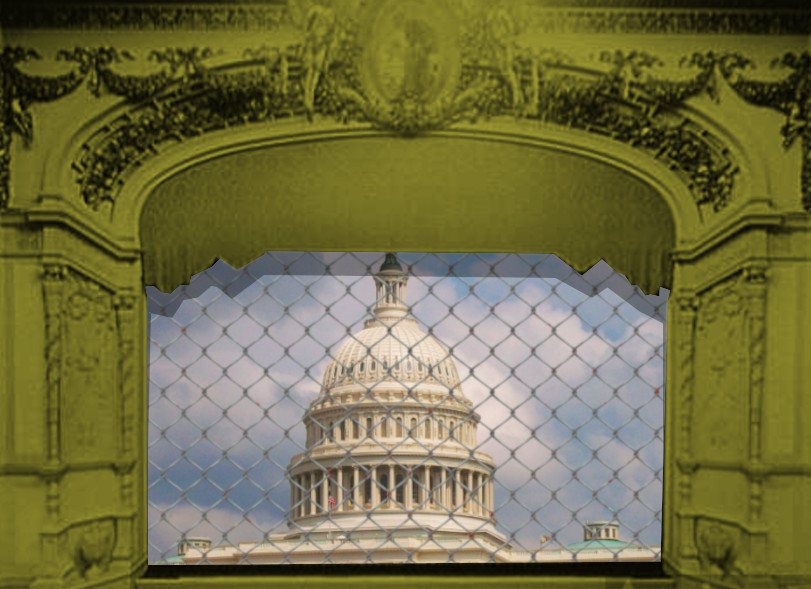Let’s get a few things out of the way: the invasion of Iraq was a war crime. Period. Argue otherwise and I’ll block you. Does that make myself and others who fought war criminals? No, of course not. Did individual soldiers and Marines commit war crimes? Absolutely.
I’m someone who is deeply proud of my service. I tried my hardest to conduct myself as humanely as possible. I’m also someone who was forced to do things I’m not proud of to survive. Taking lives should never be a point of pride.
Iraq was a failure of our own making. Not only did we invade illegally, we did it without a plan. The vast majority of the insurgency were disaffected Iraqi soldiers without a job after we broke apart their military, not religious fanatics.
Yes, groups like AQI showed up to fight, but they came after we handed them a major propaganda victory by showing up in the first place and turning PMCs like Blackwater loose. There was little to no cultural sensitivity training.
Many Marines and soldiers turned the honorific title “Haji” into a term used to describe insurgents and criminals. I’ll be bluntly honest with you: I did it too. I was a different person back then. I was a kid.
We made strings of promises to innocent Iraqi civilians to get them to work for us as interpreters and sources. We plied them promises of US citizenship. We broke most of those promises. I’ve spoken of this before.
Ultimately, we were the bad guys in many scenarios there. If that upsets you, good. It upsets me. There ARE justifications for war. But there are NEVER good reasons for one. We did not have a justification for Iraq. That makes us a hostile occupier.
Which brings us to Six Days in Fallujah. This was originally billed as a third person survival horror game about one soldier trying to get out of Fallujah. It promised to depict OIF as it actually was: a horror story. I was apprehensive, but intrigued.
Of course it was shelved and now eleven years later, it’s back as a tactical first person shooter with the specter of the DoD behind it, which really worries me.
US Army recruitment is at an all time low, which is one hell of a coincidence. From America’s Army to Army eSports, the military had a proven track record of using games as recruitment tools.
The people behind this new iteration of the game promise to depict the “true” experience of soldiers, Marines, and Iraqi civilians. But does anyone actually believe that? I don’t.
That trailer was nothing like the original concept or what’s been promised since. It’s just more flag-waving, Americans-as-liberators nonsense. I’m sure the game will regale us with tales of noble sacrifice and grateful Iraqi citizens.
When really it should depict frightened kids fighting in a war they don’t fully understand, private contractors looking for slaughter, and dead Iraqi children.
That’s not to say there weren’t acts of compassion, sacrifice, and heroism by US troops. Of course there were; I’ve seen some. The majority of those there were decent men and women who didn’t really want to be there at all.
But if you REALLY want an accurate experience, you’ll depict the outstanding courage and fortitude of the Iraqi people who worked with us, fought with us, and died with us. Because of us. They deserved much, much better than we gave them. We still haven’t apologized.
Now do I think it’s possible to do this the right way? I really do. Do I trust the devs to do it the right way? Absolutely not. I’m already pretty confident about the end result.
Understand this: every American failure, every one, is borne of a lack of foresight. Of not thinking about the consequences. There’s no better example than that of the US, the Soviet Union, and Afghanistan in 1989.
After Congressman Charlie Wilson had (very rightfully) persuaded Congress and multiple other nations to provide billions of dollars in arms to the Mujahideen to repel the murderous Soviet Army, CIA case officer Gust Avrokotos was on a balcony with Charlie.
Gust asked Wilson if he knew the story about the Zen Master. Charlie said no, and Gus told the story.
The Zen Master observes the people of his village celebrating a young boy's new horse as a gift, and they say “oh, how wonderful!” The Zen Master says, “We'll see”.
When the boy falls off the horse and breaks a leg, everyone says “oh how terrible, the horse was a curse”. "We'll see," says the Zen Master.
Then war breaks out, and all the young men go off to fight except for the boy, who can’t because of his injury. Everyone now thinks the horse is a gift again and they say “oh how wonderful!”.
The Zen Master says, “We’ll see”.
Do you understand?
I’ll talk more about this on
@officialSDGC tonight at 9pm EST.




























